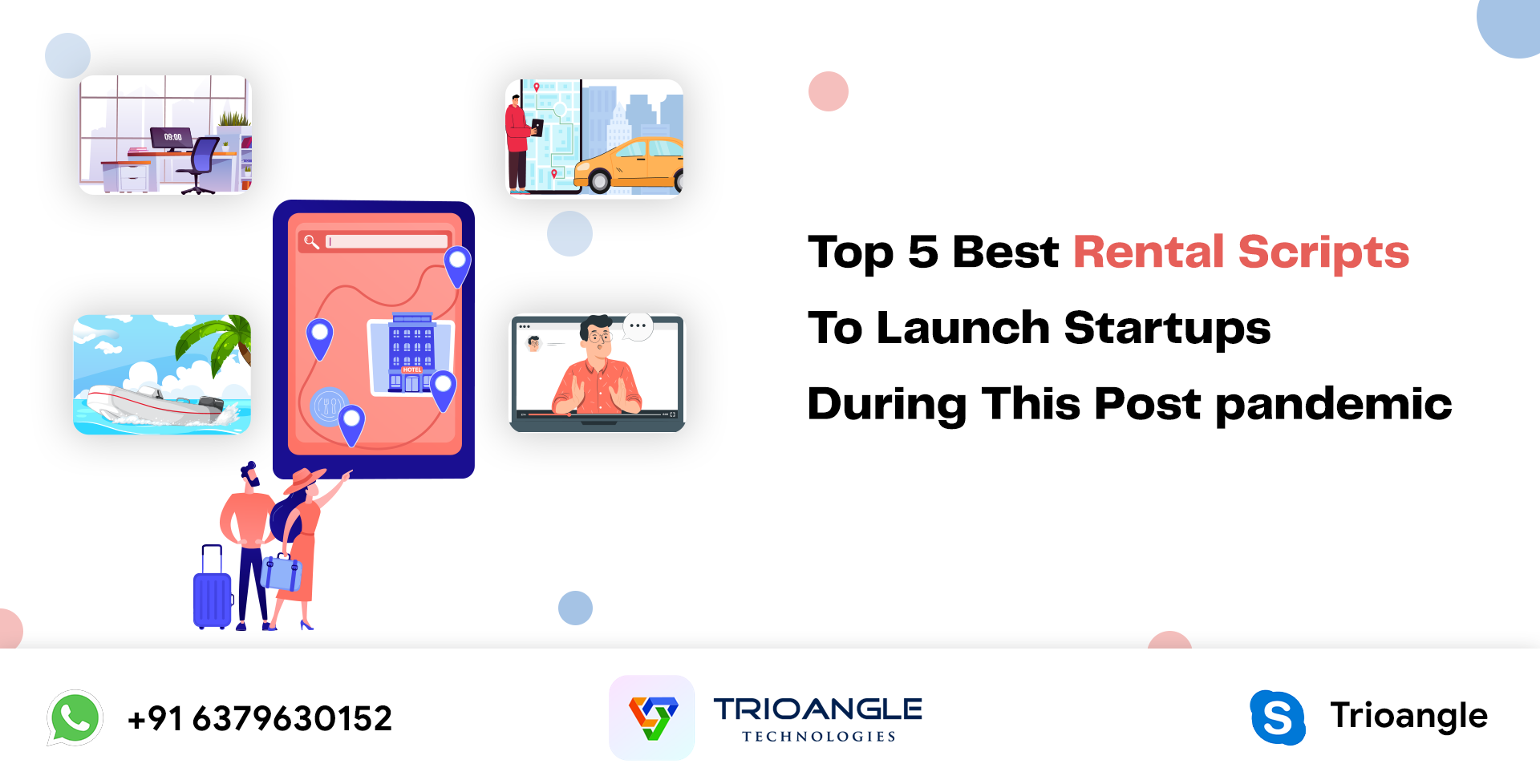The rental business market has grown at an impressive rate over the past decade, making it a highly lucrative business opportunity for entrepreneurs. With the world becoming more environmentally and economically conscious, people are increasingly looking for cost-effective and eco-friendly rental solutions.
However, to start a rental business can be daunting, especially for beginners. It requires careful playing and execution to ensure its success. But with the right approach and careful determination, you can turn your business dream into a profitable venture.
To help you launch a successful business in the rental industry in 2023, we’ve prepared a step-by-step guide. By following this guide, you’ll have the opportunity to provide customers with valuable rental solutions while building a thriving business that generates sustainable revenue.
So, are you ready to seize this exciting opportunity? Let’s get started and turn your rental startup idea into reality!
What is a Rental Business?
A rental enterprise allows customers to rent products or services for a specific period in exchange for payment. It’s a flexible way for individuals or businesses to access products and services without committing to a long-term purchase or investment.
These businesses can offer a wide range of products and services, including equipment, vacation homes, apartments, party supplies, and more.
With the growing popularity of the sharing economy, these businesses have become a popular choice for those who are looking for a cost-effective and eco-friendly solution.
Market-View of the Rental Business Industry
Here are some rental industry statistics:
- As per Statista, The global sharing economy is predicted to reach a value of $335 billion by 2025, up from $15 billion in 2014.
- According to a 2015 survey conducted by PwC, Almost 50% of Americans are familiar with the sharing economy business model, 18% of US adults have been a customer, and 7% are providers.
- 20-30% of the workforce in the US and Europe are providers on sharing platforms, according to McKinsey.
- McKinsey reports that the sharing economy is perceived by 78% of consumers as a way to reduce clutter and waste. Furthermore, people view rental platforms as a means to earn additional income by lending their property.
These statistics exhibit noteworthy economic influence and promising expansion opportunities in the rental industry.
Trends in the Rental Business Industry
The rental industry is constantly evolving to keep up with changing consumer preferences, emerging technologies, and new business models.
Here are some current trends in the rental industry:
Subscription-based Models
Many businesses in this sector are moving towards subscription-based models, where customers pay a monthly fee to access a range of products or services. This allows your businesses to generate recurring revenue and build long-term customer relationships.
Online Platforms
The rise of online platforms has made it easier than ever for businesses to connect with customers and streamline their operations. An online rental booking app like Airbnb can help these enterprises reach a wider audience, offer more flexible rental options, and simplify the rental process for both business owners and customers.
Sharing Economy
The sharing economy has disrupted many industries, including the rental industry. A platform like Airbnb has made it easier for individuals to rent out their homes, creating new opportunities for startups and individual entrepreneurs.
Contactless Rentals
In the wake of the COVID-19 pandemic, many firms in this sector have shifted to contactless rental options to minimize the risk of transmission. This can include online booking and payment, delivery and pickup services, and remote customer service and support.
How to Start a Rental Business
Starting a rental startup can be a great way to earn passive income and build wealth over time. Here are some steps related to how to start a rental startup:
1. Identify Your Rental Business Idea
The first step to getting into the rental startup is to identify what type of products or services you want to rent out. There are several business ideas to choose from, including:
Party Rental Business
This type of enterprise specializes in providing party equipment and supplies, such as tents, tables, chairs, linens, decorations, and even bounce houses. Starting a party rental business is the most profitable business idea, especially if you live in an area with many weddings, corporate events, or other celebrations.
According to Grand View Research, The party rental market size was valued at $47.4 billion in 2019 and is expected to grow at a CAGR of 5.7% from 2020 to 2027.
Vacation Rental Business
With the rise of the internet and technology, building a vacation rental business has become more accessible. This type of startup involves renting out vacation homes or apartments to travelers.
You could manage the property yourself or work with a property management company to handle reservations, cleaning, and maintenance. If you live in a popular tourist destination, a vacation rental is the best idea to start.
According to Grand View Research, The vacation rental market size is expected to reach $114 billion by 2027.
Equipment Rental Business
This type of enterprise provides equipment for various purposes, such as construction, landscaping, or home improvement projects. Examples of equipment you could rent out include power tools, lawnmowers, generators, and even heavy machinery.
Starting an equipment rental business is a good idea if you live in an area with a lot of construction or renovation projects.
As per Grand View Research, The global equipment rental market is expected to reach $136.5 billion by 2027.
2. Conducting Market Research
Once you’ve identified your startup idea, the next step is to conduct market research to assess the demand for your services. This involves understanding your potential customer’s needs and preferences, analyzing your competitors, and identifying opportunities for differentiation.
Start by answering questions such as,
- What types of products and services your target customers are looking for?
- How much are they willing to pay for them? and
- Where can they find similar items?
It’s also essential to investigate whether your customers require additional products or services in conjunction with your rentals.
By gaining these insights, you can make an informed decision about pricing, inventory, and marketing strategies that will enable business entrepreneurs to do successful rental businesses to thrive in a competitive market.
3. Choosing a Location for Your Rental Business
Choosing the right location for your startup is crucial to your success. When selecting a location for your business, it’s essential to consider various factors that can affect your business including:
- Accessibility: The location you choose should be easily accessible to your target audience and have a sufficient level of foot traffic to ensure a steady stream of customers.
- Demographics: Choose an area where your target audience lives or frequently visits.
- Competition: Assess the competition in the area to gauge the market potential.
- Cost: Consider the rental or purchase costs and other expenses.
By keeping these factors in mind, you can choose a location that will help your rental business succeed.
4. Registering Your Rental Business
After choosing the location, the next step in starting your business is to register it legally. This process involves various factors such as:
- First, you need to select a business structure. It’s a critical decision that impacts your legal liability, taxes, and ability to secure funding. The common business structures comprise sole proprietorships, partnerships, limited liability companies (LLCs), and corporations.
- Once you have determined your business structure, register for taxes and obtain the necessary permits and licenses. Depending on the nature of your enterprise, you may need to obtain a local business permit and rental license. It’s essential to research your state and local laws to ensure compliance with regulations.
- In addition to obtaining permits and licenses, securing insurance coverage is crucial to protecting your startup against unforeseen events such as property damage or accidents.
By completing these legal requirements, you can establish your rental business as a legitimate entity, and gain credibility with potential customers and investors.
5. Creating a Website or Mobile App for Your Rental Business
Having a website or mobile application is crucial to start an online rental business. It’s essential to ensure that your website or app has a user-friendly interface that is easy to navigate, allowing customers to find the information they need quickly.
It’s crucial to provide detailed information about the rental products and services that you offer, including features, specifications, pricing, and availability.
Customers should be able to view the rental products with ease and have a clear understanding of what they are renting.
Another vital feature of your rental booking app like Airbnb is to have an online booking or reservation system. This system should be easy to use, and customers should be able to complete their reservations in a few clicks.
Providing a seamless and hassle-free experience will encourage customers to return and recommend your rental business to others.
Integrating customer reviews and testimonials into your website or app can increase trust and credibility with potential customers. Reading positive reviews from previous customers can provide reassurance and confidence in the quality of your rental products and services.
6. Develop a Marketing Strategy
Once you have your website or mobile app set up, it’s time to focus on developing a marketing strategy to attract customers.
A well-developed marketing plan can make a difference between a successful rental business and one that needs help to gain traction.
This may involve using social media platforms like Facebook and Twitter, and Search Engine Optimization (SEO) to promote your business and engage with potential customers.
You may also want to consider running targeted ads to reach a specific audience, such as people who are interested in outdoor activities or travel.
Additionally, you could partner with other businesses or influencers in your industry to expand your reach and attract new customers.
7. Provide Excellent Customer Service and Boost Profitability
Finally, to launch a successful rental business, you’ll need to provide excellent customer service and focus on boosting profitability.
This may involve offering flexible rental terms, providing excellent communication with customers, and ensuring that your products are always in top condition.
Additionally, you may want to consider upselling or cross-selling additional products or services to increase revenue and profitability.
It’s important to keep a close eye on your finances and continually look for ways to cut costs and increase revenue to ensure that your business remains profitable over the long term.
Monetization Strategy of a Rental Business
The rental enterprise can be monetized in several ways, depending on the nature of the business and the products or services being offered.
Here are some common monetization strategies:
Rental Fees
The most obvious monetization strategy is to charge customers rental fees for the products or services they use.
Rental fees can be charged by hour, day, week, or month, depending on the rental period and the nature of the product or service.
To maximize revenue, these businesses may offer tiered pricing based on the length of the rental period, with longer rental periods resulting in lower per-hour or per-day rates.
Late Fees
Rental startups are to charge fees for products or services that are retired after the agreed-upon rental period.
Late fees can be charged as a percentage of the rental fee or as a flat rate.
It helps encourage customers to return products on time.
Damage Fees
To protect against damage to rental products, these firms may also charge damage fees if products are returned in a damaged or unusable condition.
Damage fees can be based on the extent of the damage and the cost of repairs or replacements, and can help cover the costs of maintaining and replacing rental products.
Upselling and Cross-selling
Rental startups can also monetize their offerings by upselling or cross-selling additional products or services to customers.
For example, a car rental company may offer customers additional insurance coverage or GPS navigation systems for an additional fee.
Cross-selling can also be effective, by partnering with other businesses to offer related products or services that complement their offerings.
Final Thoughts
Starting a rental business can be an exhilarating and fulfilling experience that can lead to great success through careful planning, hard work, and dedication.
By following the steps listed in this blog, you can lay a strong foundation for starting your rental business and increase your chances of success. Always keep in mind that your goal should not only be to make a profit, but also to provide your customers with an exceptional experience.
Whether you’re passionate about starting a vacation rental, party rental, or other types of business, have an entrepreneurial spirit and willingness to work hard then start your own rental business today and turn your dream into reality.





